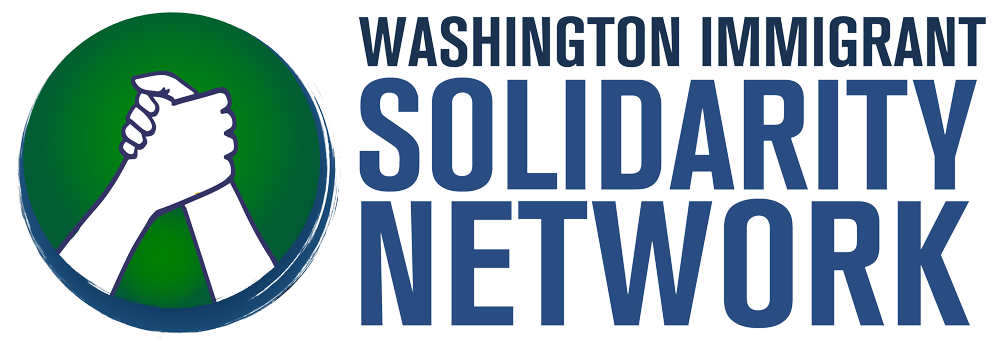A Strategic Silence: Why Our Staff Remains Unlisted
As the Washington Immigrant Solidarity Network, we write this message not from a place of fear, but from a position of strategic resistance. In this moment where xenophobic violence, surveillance of immigrant communities, and attacks on human rights defenders have reached alarming levels, we have made a deliberate choice to protect our team by not publicly listing our staff members. This decision emerges from both lived experience and scholarly understanding of how power operates to silence those who challenge oppressive systems.
Embodying Protection as Resistance
The colonial gaze has always functioned by making certain bodies hypervisible for control while rendering others invisible when convenient. As feminists have long articulated, the personal is political, and our choice to shield our team’s identities represents a decolonial refusal to offer ourselves up for consumption, scrutiny, and potential harm. Our safety is not guaranteed by systems designed to exclude us. The act of protecting our people—their names, faces, and personal details—becomes a radical act of care in a world increasingly hostile to those fighting for liberation.
When right-wing extremists compile lists of immigrant rights advocates, when ICE targets sanctuary cities, when death threats arrive in our inboxes—these are not abstract threats but concrete manifestations of state and vigilante violence aimed at silencing our work. Protection, in this context, becomes not just necessary but revolutionary. The decision to maintain privacy for our staff members allows us to continue our vital work while minimizing risks to those who dedicate their lives to immigrant solidarity.
Theoretical Praxis in Uncertain Times
Feminist theorists from Gloria Anzaldúa to Chandra Talpade Mohanty have illuminated how borders function as sites of violence and resistance. At WAISN, we operate in these borderlands both literally and figuratively. The choice to obscure our staff roster represents what Anzaldúa might call “a new consciousness”—a tactical awareness of when to reveal ourselves and when to seek shelter in collective anonymity. This is not erasure but strategic visibility, a concept deeply rooted in decolonial thought that recognizes how marginalized communities have historically protected themselves while continuing to build power.
The immigration industrial complex thrives on surveillance, on knowing and categorizing bodies, on rendering human beings into files and cases. By refusing to participate in this visibility politics on their terms, we assert our agency to determine when and how we appear. This feminist practice of strategic opacity allows us to continue serving immigrant communities while rejecting the expectation that we must make ourselves vulnerable to scrutiny and potential harm.
Collective Safety, Collective Power
Our commitment to immigrant communities across Washington State remains undiminished—if anything, it grows stronger through this act of collective protection. The work of immigration justice has always required adaptability, creativity, and strategic thinking about how we position ourselves in relation to power. We recognize that our survival itself is resistance in a system not designed for us to thrive.
When we choose not to publicly list our staff, we are engaging in what feminist scholar Sara Ahmed calls “willful politics”—a deliberate refusal to comply with expectations that would place our people at risk. This decision flows from the understanding that our liberation is bound together, and to protect each other is to protect the movement itself. Our absence from public rosters is not a void but a presence of another kind—a testament to our commitment to sustaining this work for the long haul.
Present Even in Absence
We stand at a critical juncture in the fight for immigrant justice, where the forces of xenophobia, nationalism, and white supremacy seek to undermine our very existence. In this context, our choice to shield our staff identities emerges as a necessary adaptation—not a concession but a reclamation of power. We remain fully committed to our mission of building immigrant solidarity and power across Washington State, even as we take this step to ensure the safety of those who make this work possible.
Our absence from public listings is our presence in another form—a collective refusal to be vulnerable in ways that would threaten our ability to serve. We continue our work with unwavering dedication, knowing that true solidarity sometimes means protecting each other from being targeted for the essential justice work we do. In the end, this strategic silence speaks volumes about our resilience and our determination to continue fighting for immigrant justice, no matter what challenges we face.
In solidarity and strategic resistance,
The WAISN Team
